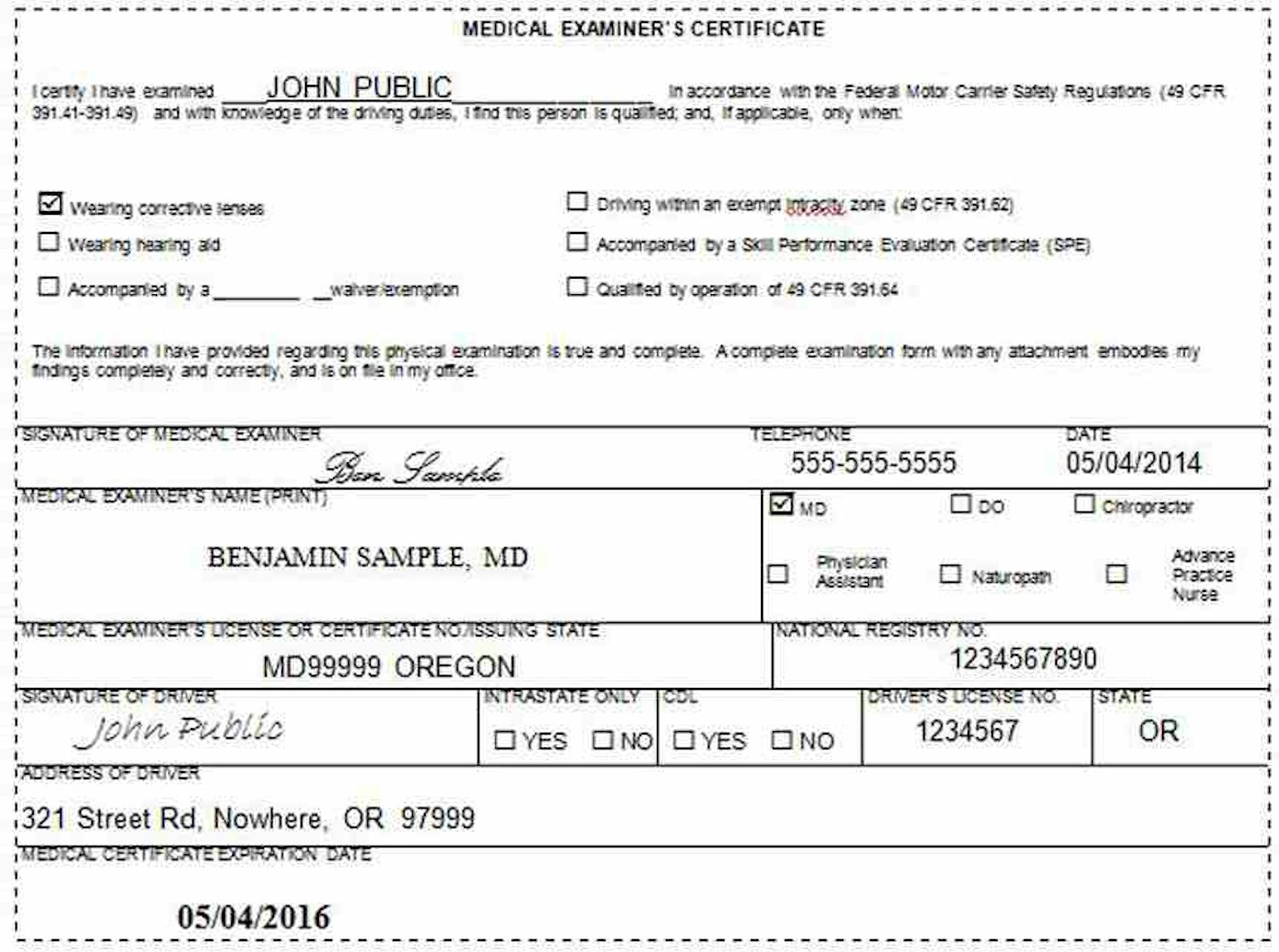DOT (Department of Transportation) physical necessities are established by the Federal Motor Carrier Safety Administration (FMCSA) to make sure that commercial drivers are bodily fit for the calls for of working industrial motor vehicles (CMVs) in interstate commerce. Here are the necessary thing bodily necessities for passing a DOT bodily:
Vision:
Visual Acuity:
At least 20/40 acuity in every eye, with or without correction.
At least 70 levels of peripheral imaginative and prescient.
The ability to acknowledge and distinguish visitors sign colours.
Hearing:
Hearing:
Ability to understand a compelled whisper at a distance of no less than 5 feet.
Hearing assist use is permitted if it allows the motive force to satisfy the hearing requirements.
Blood Pressure:
Blood Pressure:
Should be under 140/90 mmHg.
A one-time exemption could also be granted for values between 140/90 and 159/99.
Physical Fitness:

Physical Fitness:
General physical situation that enables the motive force to perform the duties of a commercial driver safely.
The absence of medical circumstances or impairments that may pose a major threat to the protection of the driver or others on the highway.
Urinalysis:
Urinalysis:
A urine pattern may be collected to verify for certain medical circumstances, including diabetes and kidney function.
It may also be used for drug testing as required by the employer or regulatory requirements.
cdl physical :
General Health:
The examining healthcare professional assesses various features of the motive force's well being, including cardiovascular, respiratory, musculoskeletal, and neurological methods.
Evaluates the motive force's general well being historical past, including information about past sicknesses, surgical procedures, and drugs.
Frequency of Examinations:
Frequency:
Commercial drivers are usually required to undergo a DOT bodily every 24 months (two years).
Drivers with sure health conditions may be required to endure extra frequent examinations.
Certified Medical Examiner:
Certified Medical Examiner:
DOT physicals should be conducted by a certified medical expert listed on the National Registry of Certified Medical Examiners.
Additional Considerations:
Medical Conditions:
Certain medical circumstances, such as diabetes or cardiovascular points, may require further monitoring and documentation.
One-Time Exemption:
A one-time exemption for blood stress values between 140/90 and 159/99 may be granted if particular criteria are met.
It's important to note that these requirements are topic to alter, and essentially the most up-to-date data ought to be obtained from the FMCSA or a certified medical expert. Commercial drivers ought to be proactive in managing their health and addressing any concerns before present process a DOT bodily to ensure compliance with regulatory standards..
